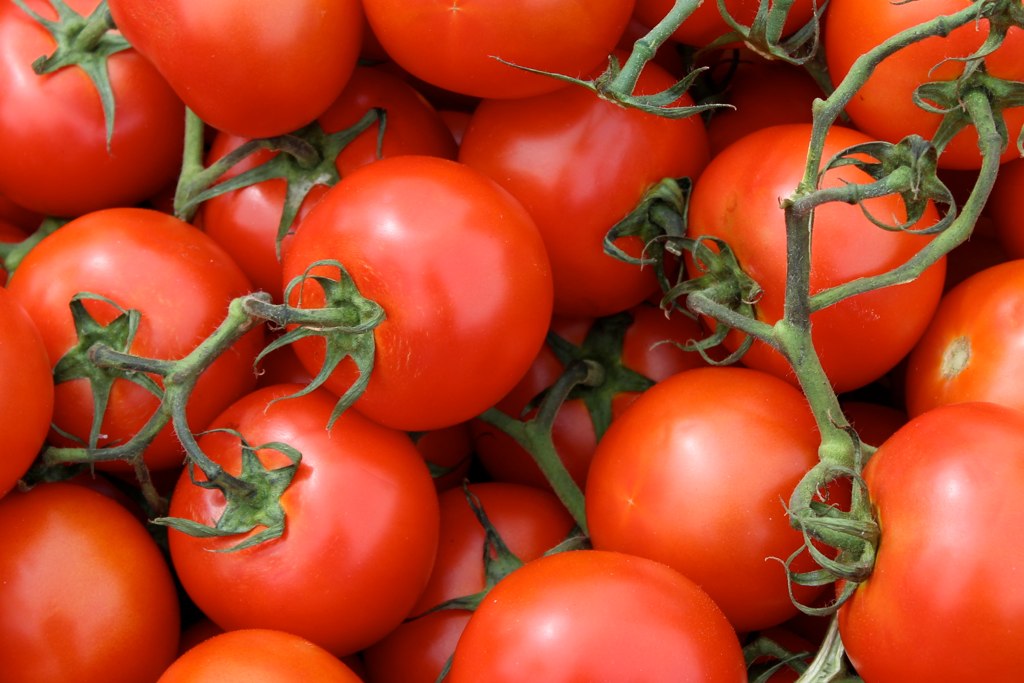Sweet, tangy, and juicy, tomatoes are nutrient-packed and considered “functional foods,” meaning that they have health benefits in addition to nutritional value. Tomatoes are a great source of vitamin C, which has shown to combat cancer-causing substances known as “free radicals.” They also possess a compound called “beta-carotene,” which gives them their red-orange color, that is converted into vitamin A in the body. Recent studies have indicated a new role that beta-carotene plays in fighting cancer.
The particular compound responsible for fighting cancer is called lycopene, a red pigment present in tomatoes. In earlier studies, researchers discovered that this pigment inhibited the growth of prostate cancer cells. When lycopene was applied to human prostate epithelial cells, scientists discovered that the degree of inhibition of prostate cancer cells depended on the dosage of lycopene. In animal studies, researchers fed tomato paste, lycopene tablets, or a placebo (the control) to prostate-cancer suffering mice. The results indicated that the lycopene tablets presented a larger reduction of prostate cancer occurrence compared to the control and tomato paste group.
Although there are many studies that demonstrate the effectiveness of lycopene in combating prostate cancer, one of the difficulties that researchers faced was how to trace the activity of the cancer-fighting substance. Just recently, a group of scientists created a way to track the activity of lycopene through the body. They fed lycopene, labeled with nonradioactive carbon-13, to eight individuals. By examining the rate at which the body absorbed the lycopene, the researchers discovered that after consuming trans-lycopene, whose structure is a straight line, it was somehow converted to cis-lycopene, whose structure is bent. The cis-lycopene is more flexible and fluid, which the scientists believe contributes to how lycopene combats certain health diseases.
Tomatoes have proven to be a potential player in the fight against cancer. We have already determined that lycopene is responsible for the tomato’s cancer-fighting ability and have understood that the shape of the substance (trans or cis) affects that ability. The current goal is to determine exactly how that increased flexibility of the cis-lycopene contributes to its disease-fighting ability. Once we determine the process, we can work towards isolating the cis-form and utilizing it as a direct treatment for cancer.
Feature Image Source: Tony










